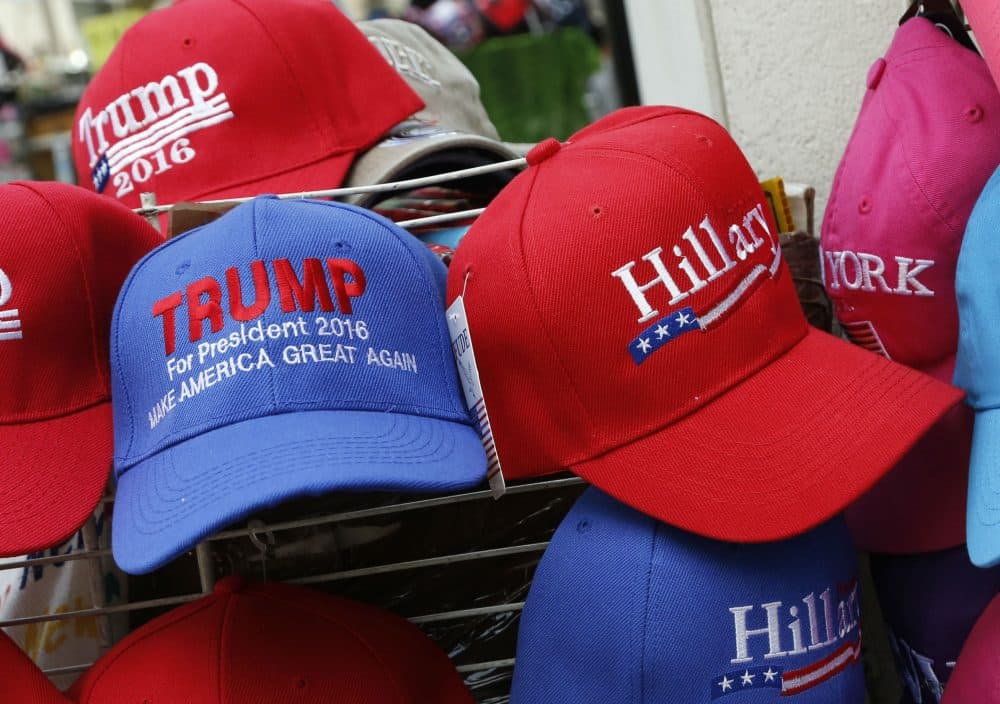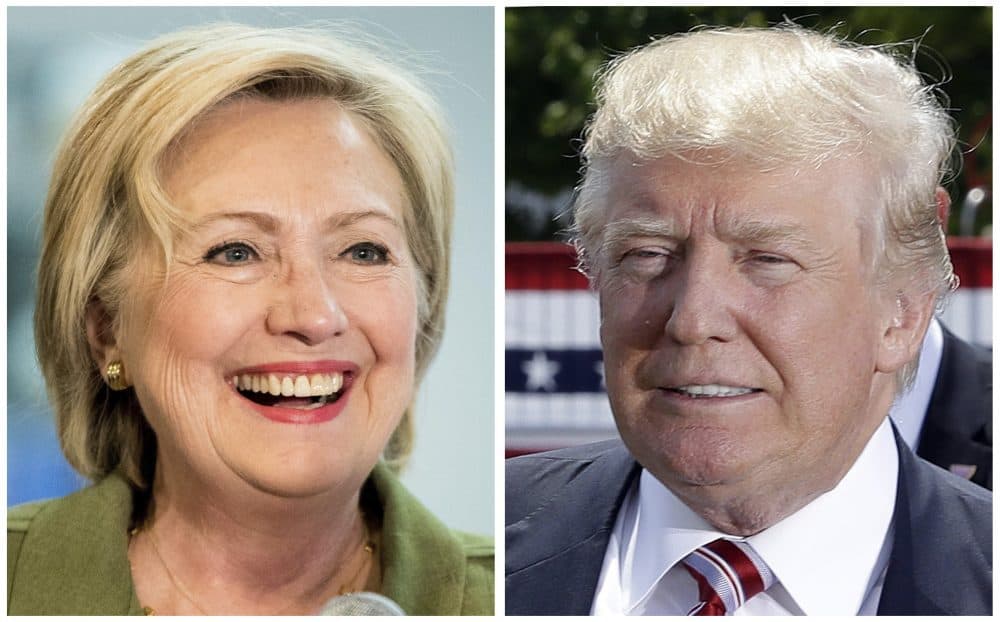Advertisement
The Mystery Of The Undecided Voter

Politics in 2016 have been tough on those who want to believe in human redemption. From hate-deranged Donald Trump supporters to Bernie Bros spewing online invective and swooning for glib calls to revolution, people who clearly didn’t sit in the gifted class have been showing up at the polls. The campaign’s closing act has given us autumn’s edition: the undecided voter.
We’ve seen him before, of course. Four years ago, "Saturday Night Live" parodied a public service video in which earnest undecideds insisted that “we’re not impressed by political spin or 30-second sound bites.” They proceeded to ask such insightful questions as “when is the election?”
But if a recent Wall Street Journal/NBC poll is to be believed, there are more undecideds this year, and they have an unusual demographic profile that tells us a lot, not just about political ignorance, but about our toxic partisan polarization.
Though Trump and Hillary Clinton have campaigned for more than a year, 13 percent of voters still can’t choose between them...
The background: Though Trump and Hillary Clinton have campaigned for more than a year, 13 percent of voters still can’t choose between them, according to the poll. That’s more than the 8 percent who couldn’t decide at this point in the 2012 race. And while past undecideds tended to be less partisan, with lower incomes and less education, this year’s include more Republican-leaning and affluent voters in the suburbs.
“What are these people waiting for?” columnist Doyle McManus asks. Indeed. On issues from climate change to terrorism to jobs and inequality, Trump and Clinton offer starkly different approaches, outlined on his and her websites. Saying you can’t make up your mind because Trump in particular dodges details on some questions doesn’t cut it; such silence is itself revealing about a candidate. Besides, issues apparently aren’t the hang-up for undecideds.
McManus cited a focus group conducted by pollster Peter Hart. You can read some of the group’s quoted responses in his column, but they boil down to this: The undecideds await some as-yet-undisclosed revelation about the candidates’ character.
Seriously?

Just as it takes political dementia to see no issue differences, so too on character. Leave aside Trump’s bigoted statements; his scandals over the decades have been so numerous that The Atlantic felt obliged to publish a “cheat sheet” enumerating them. The list includes multiple suits alleging his defunct Trump University defrauded students. Some of these remain just allegations. What’s beyond dispute are the Donald’s repeatedly recycled falsehoods — most recently, that he never supported the Iraq War (he did). At the end of the primaries, the one measure by which he bested Clinton was the “Pinocchios” he’d been awarded for whoppers by The Washington Post’s fact-checker.
In last week’s televised forum on national security, Trump said the United States should have taken Iraq’s oil as it withdrew its troops from that country. It wasn’t liberals alone who pounced. Conservative pundit David Brooks called the suggestion “moral idiocy,” “imperialism” and “plunder.”
...[undecided voters] tell us a lot, not just about political ignorance, but about our toxic partisan polarization.
As for Clinton’s “corruption,” discerned by McManus’s focus group in her using private email as secretary of state, it’s better described as hysterical Hillary hate, from people who first predicted she’d be indicted, then foamed at the mouth about the FBI being Clinton stooges. In the primaries, the bearers of such blather were the Bernie Bros, who got a justified lecture from Boston Globe columnist Scott Lehigh: “If you lean left but simply can’t bring yourself to vote for Clinton for character reasons? Well, then you’re just too pure for the politics of the real world.”
Now, the character police include those many undecided Republicans, evidently torn between party loyalty and a nominee they deplore. Such excessive partisan attachment deserves two observations. First, the private email was wrong, as Clinton admitted, and yes, she does have a self-defeating jones for secrecy. So does Trump (he still refuses to release his tax returns). If her character disqualifies her for the White House, then by definition, his does as well, even more so. Second, while political parties matter, country matters more.
Meanwhile, if you’ve chosen your candidate, then regardless of your choice, a salute: At least you can make a simple decision.
